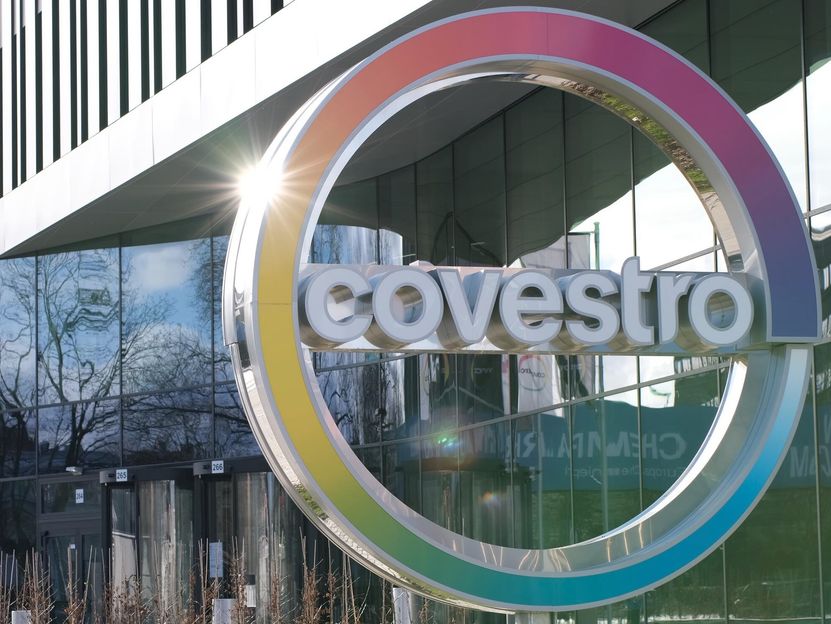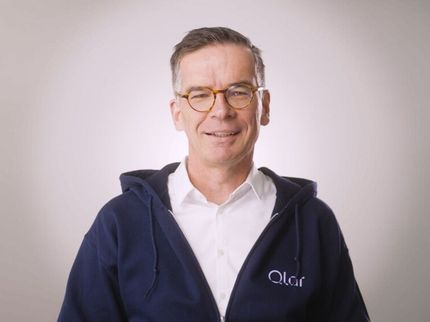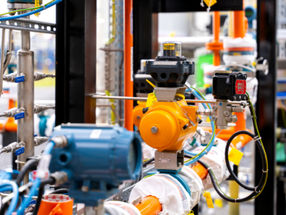Covestro: Fiscal 2022 impacted by geopolitical crises and a weak economy
Circular economy and climate neutrality more important than ever
Advertisement
Fiscal 2022 was impacted by global challenges that had significant and perceptible effects on Covestro’s business performance. In particular, the sharp rise in energy and raw material prices during the year, especially in Europe, put a strain on the company. This was compounded by continuing adverse effects caused by the coronavirus pandemic in China, high inflation and an overall slowdown in global economic growth.

Covestro
Despite lower sales volumes as a consequence of the recessionary environment, Covestro’s Group sales grew by 13.0 percent to EUR 18.0 billion (previous year: EUR 15.9 billion), the highest-ever figure in the Group’s history. A key factor in that was a considerably higher selling price level. High energy and raw material prices and slackening demand in the course of the year impacted the Group’s EBITDA. It fell in full-year 2022 by 47.6 percent over the prior-year figure to EUR 1.6 billion (previous year: EUR 3.1 billion). Net income declined to EUR –272 million (previous year: EUR 1.6 billion), in particular as a result of exceptional impairments of noncurrent assets totaling EUR 463 million and impairment losses on deferred tax assets from tax loss carryforwards totaling EUR 255 million. Despite the challenging economic environment, Covestro achieved a positive free operating cash flow (FOCF) of EUR 138 million thanks to strong working capital management. ROCE above WACC in full-year 2022 was –5 percentage points (previous year: 12.9 percentage points). The nonfinancial key management indicator for reducing greenhouse gas emissions improved by 9.6 percent to 4.7 million metric tons of CO2 equivalents (previous year: 5.2 million metric tons).
“2022 was a year of polycrisis with unprecedented challenges for Covestro. That is reflected in our results for the fiscal year,” says Dr. Markus Steilemann, CEO of Covestro. “The action we took last year was all the more resolute: We reduced our energy consumption, cut costs and worked on further developing our products. Our vision of a circular economy as well as our strategy “Sustainable Future” have proven to be a strong foundation. We are continuously gearing our product portfolio towards sustainable growth markets such as wind energy or electromobility and serving the increasing demand for circular solutions. One thing is clear, our contribution is essential for a sustainable future."
Solid balance sheet despite negative net income
“As expected, the global crises adversely affected our business performance and, due to the resultant exceptional impairments, meant that we posted negative net income for the first time,” says Dr. Thomas Toepfer, CFO of Covestro. “Yet at the same time we see that Covestro has a solid balance sheet and a stable liquidity position. In addition, we are increasingly interlinking our financing and sustainability strategies and thus gearing ourselves further towards sustainable growth. That means we are well equipped to deal with the current uncertain economic situation.”
Covestro adopted a raft of financing measures last year to bolster its liquidity position. For example, the company issued Schuldschein loans for the first time in October 2022. They are linked to an ESG (environmental, social, and governance) rating and, driven by strong demand, reached a total volume of around
EUR 650 million. The fact that the Group is increasingly linking its financing strategy to its sustainability strategy is also reflected in the first-ever establishment of a “Green Financing Framework”, which was published in May 2022. It enables green bonds and other green debt instruments with a clear benefit for the environment and society to be used for financing and refinancing products or projects. In this context, Covestro issued its first green euro bond with a total volume of EUR 500 million in November 2022.
No dividend payment for fiscal 2022
Due to the negative net income in fiscal 2022 and in line with the company’s dividend policy, the Board of Management decided that no dividend will be paid for fiscal 2022. Covestro’s dividend policy stipulates a distribution of between 35 and 55 percent of the net income in order to create a stronger link to the Group’s overall business situation. Under it, a record dividend was paid out to shareholders last year for fiscal 2021.
Sights set on sustainable growth
Despite the current global challenges, Covestro continues to systematically implement its strategy “Sustainable Future” and align its portfolio to growth markets. These include areas of importance in the future, such as electromobility and wind energy, where a significant increase in demand for high-performance and sustainable materials is expected. Covestro also expects to see a growing demand in the area of energy efficiency, for example in the field of efficient insulation solutions for buildings and refrigerators.
In addition, Covestro is optimizing its production capacities in a targeted manner for sustainable growth and improving its offerings and cost position in relation to MDI, among other things. For instance, the Group successfully began operating a new world-scale plant in Tarragona, Spain, in February 2023 so that it can manufacture its own chlorine independently. This investment of around EUR 200 million will strengthen the efficiency and competitiveness of the Group’s MDI plant there. The new chlorine plant is also the world’s first industrial-scale plant where innovative oxygen depolarized cathode (ODC) technology is used. It enables energy savings of up to 25 percent. At the new plant in Tarragona, up to 22,000 metric tons of CO2 emissions per year can be avoided compared with existing processes.
Circular economy more important than ever and a strong focus on the customer
To help its customers reduce their own carbon footprint and identify more sustainable product alternatives more quickly, Covestro introduced the new "CQ" concept last year. With this, the Group highlights those products that contain at least 25 percent alternative raw materials. At the same time, Covestro continues to expand its portfolio of sustainable products. For example, the Group has developed a partially bio-based and fully recyclable coating resin for the packaging industry that acts as a consistent protective layer for food. This is a major step forward, as food packaging is still mostly made of multilayer composites that provide food protection but reduce the recycling of paper packaging. Other developments in the past year included the introduction of climate-neutral MDI and renewable toluene diisocyanate (TDI).
The company is also pressing ahead with its vision of becoming fully circular and is working to expand the use of alternative raw material sources in order to make itself independent of fossil resources in the long term. For example, the Group is gradually converting its production sites to electricity from renewable sources. The most recent example of that is the large supply agreement signed in December 2022 with CGN New Energy for the procurement of 300 GWh of wind and solar power annually for its site in Shanghai, China. Since the beginning of 2023, the site has met over 30 percent of its electricity requirements from renewable energy as a result. This agreement therefore marks an addition to the existing power purchase agreements (PPAs) that supply Covestro’s production sites worldwide with renewable energies. In full-year 2022, the Group will therefore cover 12 percent of its global energy requirements with electricity from renewable sources, a figure that is expected to rise to 16 to 18 percent in 2023.
Outlook for 2023: economic conditions remain challenging
In view of the challenging and uncertain economic and geopolitical conditions that will persist in 2023, Covestro for now has decided to classify its outlook for fiscal 2023 on a qualified-comparative basis at this time.
The company expects EBITDA of the Covestro Group and the Performance Materials segment to be well below that of the previous year. Covestro expects EBITDA at the Solutions & Specialties segment to be around that for 2022. Covestro assumes that FOCF at Group level and for the Performance Materials segment will be significantly below the figure for the year 2022. However, the company projects FOCF in the Solutions & Specialties segment to be significantly higher than in 2022. Covestro anticipates that ROCE above WACC will be significantly down on the previous year and expects greenhouse gas emissions measured as CO2 equivalents to be around the 2022 level. Covestro expects that EBITDA for the first quarter of 2023 will be EUR 100 million to EUR 150 million.
Challenging environment for both segments; EBITDA at Solutions & Specialties rises
Sales in the Performance Materials segment in fiscal 2022 increased by 11.7 percent compared to the prior-year period and were EUR 9.1 billion (previous year: EUR 8.1 billion), in particular as a result of a rise in the selling price level. EBITDA fell by 63.0 percent over the prior-year period to EUR 951 million (previous year: EUR 2.6 billion), mainly due to lower margins as a result of higher raw material and energy prices coupled with a decline in sales volumes. As a consequence of the decline in EBITDA, the segment’s FOCF also fell by 60.8 percent to EUR 544 million (previous year: EUR 1.4 billion).
Sales in the Solutions & Specialties segment in fiscal 2022 grew by 13.3 percent to EUR 8.6 billion (previous year: EUR 7.6 billion), in particular as a result of a rise in the selling price level. EBITDA at Solutions & Specialties increased by 9.9 percent over the prior-year period to EUR 825 million (previous year: EUR 751 million). A contributing factor here was the fact that integration of the RFM business was accomplished even faster than planned, and lower nonrecurring expenses and higher synergy effects had a positive impact on earnings. The segment’s FOCF increased by 34.5 percent over the prior-year period to EUR 195 million (previous year: EUR 145 million), mainly due to the increase in EBITDA.
Fourth quarter of 2022: cash generated in a volatile market environment
Covestro’s sales in the fourth quarter of 2022 fell by 8.6 percent to EUR 4.0 billion (previous year: EUR 4.3 billion). EBITDA in the final quarter of full-year 2022 was EUR –38 million (previous year: EUR 663 million), while net income was EUR –899 million (previous year: EUR 302 million), in particular as a result of exceptional impairments and impairment losses on deferred tax assets from tax loss carryforwards. FOCF was very positive in the fourth quarter of 2022 due to the Group’s rigorous working capital management, increasing by 54.5 percent to EUR 550 million (previous year: EUR 356 million).






























































